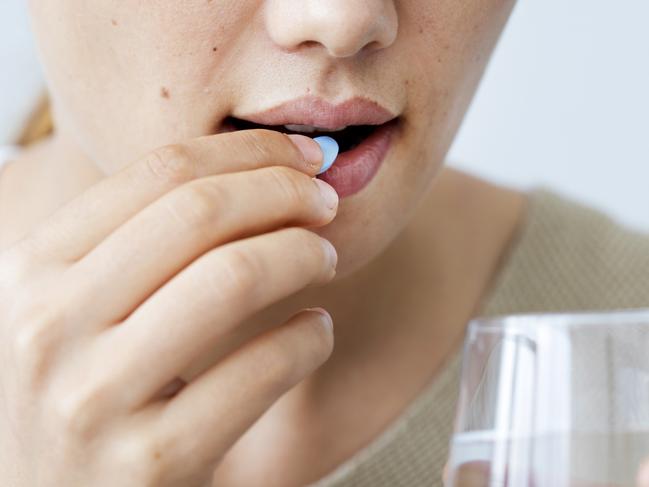Monash researchers show new drugs reduce inherited cholesterol
Two new drugs will soon be available to target little-known forms of high cholesterol, which are driven by our genes and which so far have lacked treatment options.
Victoria
Don't miss out on the headlines from Victoria. Followed categories will be added to My News.
People born with inherited high cholesterol — known as the “evil cousin” — may soon have access to new and potentially lifesaving drug treatments developed by Melbourne researchers.
Two clinical trials involving Victorian patients show the drugs “dramatically” reduced levels of the conditions.
Cholesterol is a waxy substance throughout the body and not “bad” unless there’s too much of it.
While medication and lifestyle can manage most forms, until now those with genetic types of high cholesterol have had few therapy options.
Director of the Victorian Heart Hospital and Monash Victorian Heart Institute, Professor Stephen Nicholls, led the trials of the drugs, which were taken orally daily, with Monash Health and Monash University teams.
He presented the results at the American Heart Association Conference in Chicago on Tuesday to coincide with the publication of the results in the journal JAMA.
“We studied different drugs for two separate conditions, but the unifying link was they are both forms of high cholesterol driven by your genes,” Prof Nicholls said.
“For most people with high cholesterol it simply goes up the older they get, but we also know that there are genes for cholesterol. The two conditions driven by genes that are particularly important to us are familial high (FH) and Lipoprotein(a) or Lp(a).”

He said these were often underdiagnosed and undertreated as they were not screened as part of a standard cholesterol blood test, or funded by Medicare.
“It means less than 10 per cent of those affected are identified so they and their families may unknowingly live with an increased risk of premature cardiovascular disease,” Prof Nicholls said.
The Kraken trial studied the world’s first oral drug to target Lp (a) called a Muvalaplin.
“This drug is a game-changer,” Prof Nicholls said. “Not only do we have an option for lowering an elusive form of cholesterol, but being able to deliver it in an oral tablet means it will be more accessible for patients.”
He said this genetic form of high cholesterol affected one in five people and had no approved treatment.
Prof Nicholls said it was similar to LDL or ‘bad cholesterol’, but more like it’s evil cousin as it was stickier and increased the risk of blockages and blood clots in arteries and also the risk of heart attack and stroke.

The Brooklyn trial tested a drug called Obicetrapib for patients with FH, described as a silent genetic killer, and found it lowered bad cholesterol by more than 41 per cent after a year.
Around one in 250 Australian adults have FH and Prof Nicholls said this drug offered them hope.
“These people tend to not only have high cholesterol at an earlier age, but they have very high levels and so the medications that we have now, while good, don’t get it low enough for them,” he said.
“Lowering cholesterol in these individuals and lowering it from a relatively young age can be an important way of preventing early heart attacks and strokes.”
Prof Nicholls said developing drug treatments and improving patient outcomes was what the Victorian Heart Hospital was supposed to be about.
“We put a hospital on the campus at Monash University, we wanted to be leading innovation and this is a return on investment by the taxpayers of Victoria,” he said.
“The fact that we can be leading things that have the potential to change the course of a disease for many patients is what this should all be about.
“The hospital should be about providing world-class care for patients and about developing the solutions for the future.”
Larger clinical trials are planned for next year with hope the drugs can be made available within two to three years.




